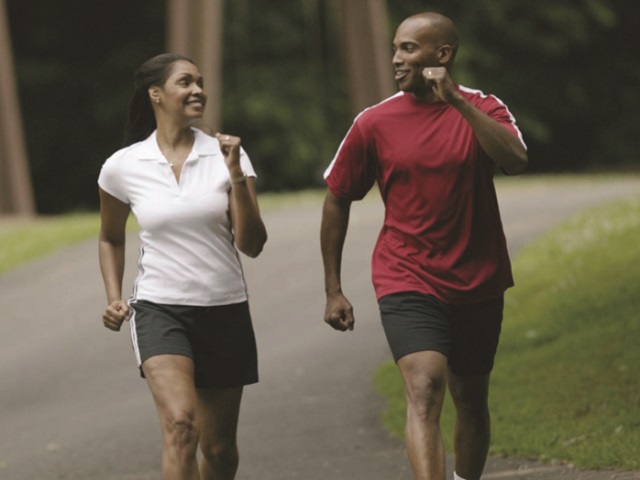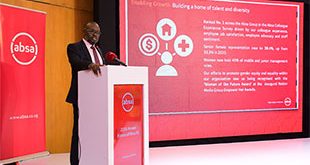
The constant battle between the patient and physiotherapist
Kampala, Uganda | FLAVIA NASSAKA | It’s 9 O’clock in the morning at the physiotherapy department at Mulago National Referral Hospital in Kampala, and an elderly looking bare footed man is sitting drenched in sweat in the lobby. He has just finished a 15 minute walk up and down the stairs and is waiting for the physiotherapist to assess him before he, hopefully, can embark on the next regimen of exercises.
We say “hopefully” because the sweating man is the renowned former Express FC goal keeper Enock Bamula. He is 67 years old now and he has been bed ridden after suffering a stroke two years ago. But he has just had a heated argument with his physiotherapist reminding her of his fit past. They disagreed on what exercises he could or could not do.
The physiotherapist, Hellen Namasembe, of the Uganda Heart Institute, also at Mulago says it does not matter how fit one was in the past, patients in Bamula’s category are restricted on the intensity of exercises they can do. She says her role as a physiotherapist is to help the patient learn to use their muscles and nerves well again by employing several suitable techniques.
“They can’t just do everything. Every one’s need in exercise is different,” she says.
Then Namesembe shares the frustration she and her colleagues face when it comes to agreeing with their clients regarding which exercises best suit them. She says physiotherapy looks at the patient holistically. For instance, after a heart surgery, they initially do simple exercises on the bed, then focus on the chest area to clear the airways of secretions that come with anesthesia before going into ambulation and eventually more intensive exercises.
“Some muscles on their affected side may become stiff. This will definitely limit their movement at the joint and sometimes they develop muscle spasms or a type of stiffness called spasticity,” she says.
In such a condition, massages, low intensity exercise, and electrical treatment, can be of more help.
Experts agree that the reason many people don’t achieve their aim with exercise is because of being impatient and the need for instant results. Physiotherapy provides slow healing and stories such as that of Bamula seem to prove this.
He moved into this clinic on a wheel chair in April, five months later though he threw away the chair and yet he is still trying to get back on his feet.
Dr. Richard Kasiita, the principal physiotherapist at Mulago hospital says exercise can be used as treatment just as medicine is but unlike medicine it does not come with definite dosing instructions that a person will need this much to get well, improve their health, or live longer.
He said even for wellness, not everybody will do well on a certain kind of exercise. To him one needs to be assessed first in order to get the best from exercise.
“If you want to lose weight, your exercise will be different from that one who just wants to be fit. I’ve heard people complain that their weight loss programs haven’t worked. It’s because they are doing everything all wrong,” he says. He says such people need to consult physiotherapists who know which muscles and nerves to move to achieve results.
“They will know what to do to promote health, they will tell you to walk at this rate, at this frequency, what type of walking.
For instance leisure walking has no effect on the impact on the heart rate and the muscles, he says, yet many Ugandans are unaware of this and even those who know the relevance of exercise are struggling to make time for physical exercise.
At the national physiotherapy clinic which he heads and offers free services, Kasiita says they receive between 60 and 80 clients as outpatients daily but all of them report with a particular form of trauma or Musculo-Skeletal conditions – disorders that affect one’s movement. Rarely do they receive clients consulting them for wellness.
“That is where the danger is,” he says. Worldwide inactivity is the fourth risk factor for death and is also a risk factor for non-communicable diseases across all age groups.
Dr. Annet Nankwanga who heads the Sports Science Unit at Makerere University says 23% of adults in Uganda are inactive whereas 81% of children are inactive yet the young need an average of 60 minutes of moderate physical activity every day and at least 30 minutes for adults to stay healthy.
Nankwanga who holds a PhD in physiotherapy says those with diabetes, hypertensive disorders and the elderly need a lot of exercise but it should be graded for intensity, duration and frequency if they are to get significant benefits. She advises people in their 40s to spend time walking at a brisk pace daily.
Initially, the professor says, physiotherapists were known to exclusively treat those with physical injury. But now they contribute to a multidisciplinary team where their services are used by those with mental health issues, heart disease, and even wellness.
****
 The Independent Uganda: You get the Truth we Pay the Price
The Independent Uganda: You get the Truth we Pay the Price




Tired of feeling weighed down by excess pounds? I know the feeling. But thanks to this incredible weight loss product, I dropped from 95kg to a lean 60kg. Take control of your weight by click here!
Losing weight had always felt impossible, but this remarkable product made it happen. From 100kg to a fit 70kg, I now feel more confident than ever. click here to embrace a healthier you!
I used to struggle with my weight, but this incredible weight loss product came to the rescue. From 95kg to a fit and fabulous 65kg, I feel like a brand-new person. click here to unlock your weight loss potential and embark on a transformative journey!
Say goodbye to the complexities of diabetes management. This product has streamlined the process and made it easier to live a fulfilling life with diabetes. click here to discover the power of modern diabetes technology!